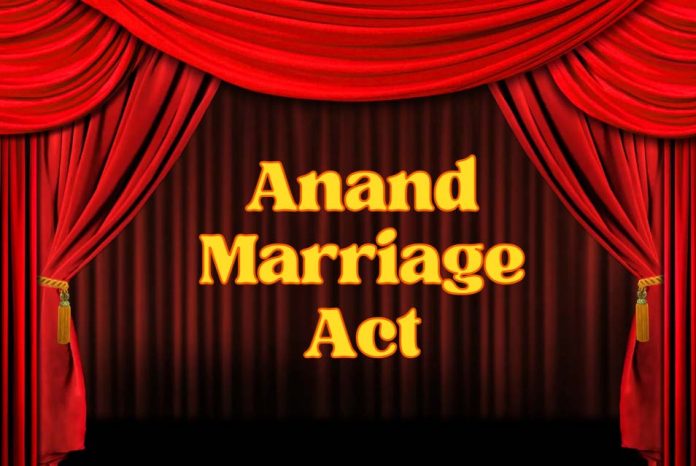Addressing a protracted demand of the Sikh community in Jammu and Kashmir, the Union Territory Administration implemented exhaustive regulations for the registration of marriages under the Anand Marriage Act, which has been set in motion forthwith. According to the recently promulgated ‘Jammu and Kashmir Anand Marriage Registration Rules, 2023,’ the designated Tehsildars are appointed as Registrars for such marriages within their respective territorial jurisdictions. As per the stipulations articulated in the notification by the Department of Law, Justice, and Parliamentary Affairs, Sikh couples are granted a window of three months after their nuptials to seek registration. However, failure to complete the requisite formalities within this timeframe attracts a tardiness penalty.
India has persistently upheld its secular identity over the centuries, fostering an environment of tranquillity and coexistence among its diverse populace. The legislative framework reflects a meticulous approach, precisely crafted to encompass the distinctive needs of every religious community within Indian society. The nation’s strength lies in its unity in diversity, a concept diligently nurtured for decades. The constitutional safeguards extend to preserving the religious identity of various sects and ensuring absolute freedom in religious practices and rituals. Even in matters of property, the legal landscape is designed to facilitate the division of ancestral assets by time-honoured traditions that have endured for centuries. This ethos extends to marriage laws as well, where the Marriage Act meticulously incorporates the diverse traditions of various religions, delineating the intricate details of legalising and registering marriages.
While traditional marriage ceremonies suffice for ordinary occasions, situations demanding legal validation, such as passport applications, ration card issuance, insurance claims, the resolution of ancestral property disputes, and the adjudication of marital conflicts, necessitate the significance of a legally registered marriage. This documented validation becomes particularly pivotal for international immigration, where many countries mandate the legal registration of marriages, disregarding traditional ceremonies. In such jurisdictions, conventional marriage practices lack recognition, underscoring the indispensability of formal registration with the relevant authorities. Given the multitude of challenges across various domains, the meticulous registration of marriages emerges as the singular solution.
Sikhs, harbouring a longstanding aspiration to register their marriages under the Anand Marriage Act of 1909, found support in the Central Government’s proactive amendment, incorporating the Anand Marriage Act. However, the onus of formulating specific rules was delegated to individual states. Some states and Union Territories failed to comply with the Central Government’s directive, prompting Sikh bodies to file a case in the Supreme Court. Last year, the Apex Court issued a directive, compelling states and UTs to adhere to the order. Among the defaulting regions was the UT of J&K, a diverse enclave with a small Sikh population. Despite their numerical minority, the UT administration has demonstrated a commendable commitment to inclusivity by acknowledging and accepting the long-pending demand of the Sikh community. The administration of Jammu and Kashmir has admirably addressed numerous issues faced by the Sikh community, displaying a commitment to resolution even in the minor intricacies outlined in the Anand Marriage Act. Rules and regulations have been meticulously drafted in consultation with the Sikh community, ensuring their contentment.
Jammu and Kashmir, characterised by its heterogeneity, now stands as a testament to the administration’s sensitivity towards diverse religious communities. The prescribed timeline for registration, along with the stipulated fees and penalties, underscores the appropriate action taken. This development marks a much relief for the Sikh community, signalling the administration’s conscientious regard for the distinct needs of various religious groups. Marriages, pivotal family events entrenched in centuries-old traditions, have now found legal recognition and procedural clarity. The Act has been crafted with a comprehensive approach, leaving no aspect overlooked. It serves as a testament to the Government’s responsiveness to the religious concerns of different communities, consistently demonstrating a willingness to accommodate legitimate demands within the constitutional framework.


